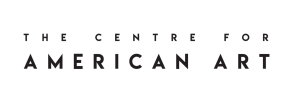Harold Rosenberg (1906-1978) is still primarily known by a single essay, “The American Action Painters,” which was published in ARTnews in 1952. When the piece appeared in the December issue, the response was phenomenal. Not only did it galvanize a still unnamed community of vanguard artists–later known as the New York School– but action became a trope for midcentury art that lasted well into the early 1960s. Therein lay a certain irony: Rosenberg was never professionally identified as an art critic until a decade later when he was offered a staff position at the New Yorker. Prior to this time, he was recognized as a poet and literary commentator who had matured during the Great Depression writing for publications such as the Partisan Review, and later, Commentary and Dissent.
As the first American correspondent for Les Temps modernes, Jean-Paul Sartre’s journal that was launched in the wake of the Liberation of Paris in 1944, Rosenberg became associated with the international dimensions of existentialist thinking, bringing a particularly American spin to its emphasis on subjectivity. Part of his project involved rejection of the New Criticism, particularly its formalist offspring deployed to interpret art. When confronted with the formalism of his arch rival, Clement Greenberg, and Greenberg’s close reading of painting as a self-referential object, Rosenberg would counter that modernist originality could be construed only by elaboration of the social forces that weighed on art-making during the Cold War, a period of increased cultural conformity.
After Paris was occupied by the Third Reich in 1940, Rosenberg deemed that “the laboratory of the twentieth century had been shut down.” That is, modernism’s capital witnessed the end of its authority. Rosenberg knew that history thereafter could no longer be explained as a progressive unspooling of events or ongoing continuum. If anything, he thought, the German Occupation signaled that the narrative of civilization had become ruptured and fragmented. When he eventually penned “The American Action Painters,” just as Manhattan replaced Paris as an international cultural center, he was acutely aware that art never abided by an interrelated pictorial schema.
This lecture, which draws from my recent intellectual biography, Harold Rosenberg, A Critic’s Life, focuses on Rosenberg’s construction of action and how its meanings and themes foreshadowed the waning of the modern period.
Debra Bricker Balken is an independent scholar and curator who works on subjects relating to American modernism and contemporary art. Her award-winning books include Philip Guston’s Poor Richard (2001) and Abstract Expressionism: Movements in Modern Art (2005), as well as exhibition catalogues such as Arthur Dove, A Retrospective (1997), The Park Avenue Cubists (2003), Dove/O’Keeffe: Circles of Influence (2009), After Many Springs: Regionalism, Modernism and the Midwest (2009), John Storrs: Machine-Age Modernist (2010), John Marin: Modernism at Midcentury (2011) and Mark Tobey, Threading Light (2017).
Recipient of an Inaugural Clark Fellowship at the Clark Art Institute, a Senior Fellowship from the Dedalus Foundation, and a Rockefeller Foundation Fellowship, she has just completed Harold Rosenberg, A Critic’s Life for the University of Chicago Press with additional grants from the Getty Research Institute and the Andy Warhol Foundation for the Arts. She has taught at Brown University, the Institute of Fine Arts at New York University and the Rhode Island School of Design. In 2005, she served as the Sterling and Francine Clark Visiting Professor in the Williams College Graduate Program in the History of Art.
She recently brought out Arthur Dove, A Catalogue Raisonné of Painting and Things with Yale University Press.
Organised by Professor David Peters Corbett (The Courtauld) and Dr Tom Day (The Courtauld)

